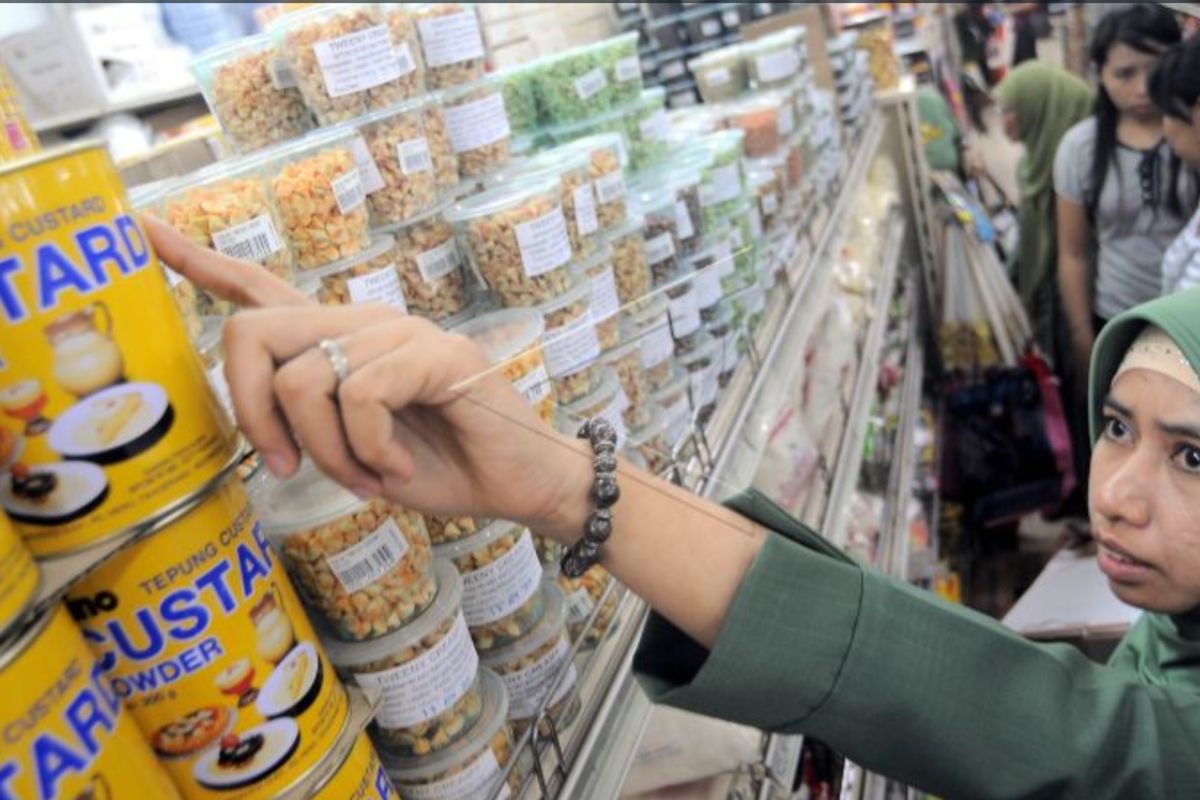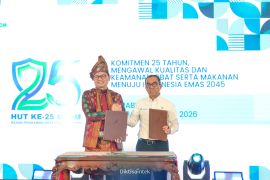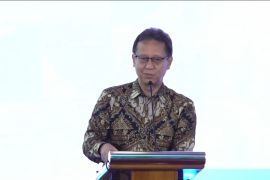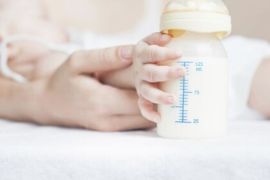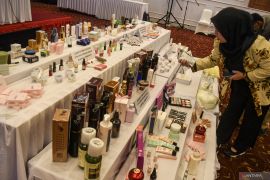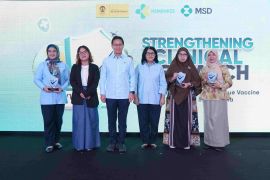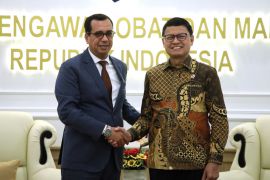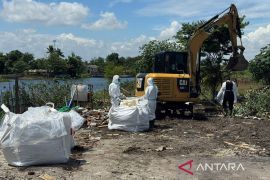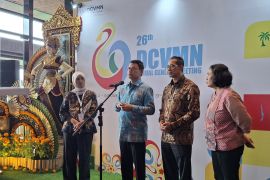The incident in mid-2022 claimed the lives of around 199 consumers, who chiefly constituted children.
The case of acute kidney failure caused by the compounds -- ethylene glycol (EG) and diethylene glycol (DEG) -- has drawn public attention on account of the gaps in the drug and food control system in Indonesia.
The digital footprint also records the distribution of counterfeit DPT/HIB vaccines for children in July 2016 that involved at least 37 health facilities, including 14 well-known hospitals. Meanwhile, the latest phenomenon is the use of liquid nitrogen in processed foods that are popular among children and called "Smoke Snack" that also caused food poisoning in several regions.
The series of incidents brings awareness to the public regarding the need to strengthen a comprehensive drug and food control system to protect the people from exposure to dangerous products for their health.
The challenges for supervisory authorities in Indonesia are increasingly complex, as they are faced with the wide coverage area and geographical conditions in Indonesia, population growth, globalization and free trade, developments in technology and e-commerce, smuggling of illegal products, to the binding law.
Pharmacologist and clinical pharmacist from Padjadjaran University, Bandung, Professor Keri Lestari, summarizes the challenges for drug and food regulatory authorities into two parts -- safety and independence factors -- which must run in parallel with the goal to produce quality and safe products equipped with data before it reaches the consumer.
In addition, a long and complicated bureaucratic process that requires a large amount of money should not hamper efforts to provide safe products for the consumer.
As was earlier known, the national pharmaceutical industry produces around 90 percent of the total national drug volume in various types of tablets, syrups, injections, capsules, inhalations, and several other medicinal products.
However, cases of drug contamination only occurred specifically in the type of syrup and did not occur in all types of drug products from other pharmaceutical industries.
The data shows that around five percent of the various syrup drugs that were circulating had been tainted and less than two percent of the total drugs in circulation were proven to be tainted. Meanwhile, more than 94 percent of other syrup drugs are safe for consumption.
This shows that majority of the pharmaceutical industry's production quality control system and guidance system by BPOM are running well. On the other hand, some specific issues have caused problems with syrup drugs.
In the case of imported raw materials for syrup drugs in the form of polyethylene glycol (PEG), propylene glycol (PG), and EG/DEG to Indonesia, the Indonesian Pharmaceutical Association (GPFI) indicated that there was counterfeiting of solvents by irresponsible chemical suppliers, who replaced PG ingredients with EG/DEG.
In addition, the final products of medicinal syrup are not examined for EG/DEG content since so far, there is no standard in the world for EG/DEG inspection of finished drug products.
Although the case is still being investigated, BPOM observed that the counterfeited solvents' materials entered Indonesia through general chemicals channel for industrial needs, such as raw materials for paint and radiator cleaners.
In fact, additional raw materials in the syrup production process should be within the range of pharmaceutical grade that is supervised by BPOM.
For this matter, the drug and food control process needs a more strict legal umbrella in the form of law enforcement. Each institution assigned with the task to supervise the food and drug control will have strong independence and authority in carrying out its duties.
To this end, the Indonesian Pharmacist Association supports efforts to strengthen the independence of the BPOM institution as long as the agency could adjust to the community’s ability, such as providing fast licensing, opening more opportunities for product innovation, and simpler bureaucracy.
The ability to adapt will strengthen BPOM’s image as a protector of the community rather than an obstacle for them.
It is hoped that the independence of the BPOM institution will also reinforce legal responsibility when problems related to the safety of drug and food products arise in the community in order to avoid miscommunication between agencies.
Related news: Liquid nitrogen snacks must be prepared by competent persons: BPOM
Comparison
As a comparison, it is necessary to see how other countries regulate and carry out their drug and food control, for instance, the Australian New Zealand Food Standards/FSANZ (Australia), Ministry of Food and Drug Safety/MFDS (South Korea), Pharmaceuticals and Medical Devices Agency/PMDA (Japan), and Saudi Food and Drug Authority/Saudi-FDA (Saudi Arabia).
Of the four countries, South Korea's MFDS is a national regulatory authority that is considered to be used as a reference in strengthening BPOM institutions, such as in terms of duties, functions, and roles in supervising drugs, medical devices, biological products, cosmetics, herbal medicines, and food that includes agricultural, livestock, and fishery products.
MFDS also plays an important role in overseeing food safety from upstream to downstream, increasing the authority of the Criminal Investigation Office (CIO) to investigate and prosecute any violations of the law that occur against controlled commodities, and plays an important role in advancing the industrial sector, viz., the pharmaceutical sector.
MFDS institutions are regulated by the National Government Organization Act and strengthened by laws regulating the authority to oversee food quality and safety, pharmaceutical affairs, cosmetic products, and medical devices.
The MFDS was originally responsible to the Ministry of Health, but with the restructuring, it became a ministry-level agency that must directly report to the prime minister.
In executing its duties, MFDS divides the role of functions between the center and the regions. The head office in Seoul is accountable as a policy maker and development, while the six regional offices in Seoul, Incheon, Busan, Daegu, Daejeon, and Kwangju function are responsible for law enforcement, oversight, and surveillance, including conducting company inspections.
Regulatory and supervisory authorities in other countries, such as the United States, South Korea, and Malaysia, are divided into two different entities in order to bring clarity from those responsible for providing services and products that circulate in the public.
This comparison can be used as a reference in strengthening the independence of Indonesia’s BPOM that has its own law as well as the MFDS that is directly responsible to its prime minister, the head of government.
The independence of BPOM actually presents a tough task. On one hand, they have to adapt to international standards, but on the other hand, they are facing demands for domestic services that occasionally require discretion in certain conditions.
For instance, the flexibility in licensing herbal medicines that have met empirical evidence, as they have been used for a long time in the community, so it does not need sub-chronic toxicity tests that are expensive and take a long time to process.
The stigma regarding the complexity of the bureaucratic system while dealing with BPOM needs to be corrected through better public communication, such as through disseminating information about fulfilling the appropriate requirements procedures to help accelerate the permit issuance process.
Support for independence is also believed to grow when BPOM is able to provide fast service for distribution license applicants as well as product safety guarantees for the general public. With those two services, BPOM’s independence will bring great benefits to the community related to the development of medicine and food.
In order to realize this independence, BPOM must ensure the presence of a supporting ecosystem that meets the expectations of stakeholders.
"Perhaps, now, BPOM has not met the expectations of stakeholders since it is not yet fully independent because it has to also coordinate with other agencies," Lestari noted.
Related news: BPOM oversees destruction of syrup drugs containing EG, DEG
Legal sanctions
In terms of the legality aspect, BPOM still has limited law enforcement authority, one of which is in the case of disclosing cases of illegal food distribution involving online networks, where the competent authority lies with the Ministry of Communication and Informatics.
Under these conditions, BPOM is helpless in dealing with online distribution cases. Once the merchant is taken down, another merchant will grow again. In addition, sanctions can only be imposed if there is coordination between BPOM and the ministry.
Quite often, under all forms of law enforcement associated with drug and food products in Indonesia, the perpetrators always receive suspended sentences, which is quite in contrast to the sentence of 10 years' imprisonment stipulated in Article 196 of the Health Law.
With the increasing incidents of drug and food related crimes every year, it is necessary to regulate criminal sanctions as a deterrent effect, especially for criminals, who are legally proven to have committed intentional acts with a specific purpose.
In the process of supervising drug and food products until they reach consumers, the manufacturers are regulated in the provisions of Good Manufacturing Practices (GMP), Good Drug Distribution Methods (CDOB), and good service practices. The integrity of relevant parties is needed in overseeing the compliance of the closed system in order to avoid problems from arising in future.
However, Law Number 36 of 2009 on health only regulates the supervisory staff to manage issues related to resources in the health sector and health efforts without clearly regulating the supervision of medicine and food in functional positions, such as GMP, CDOB, food, food safety instructors, and evaluators.
The expertise of the investigative team is also needed to handle intentional or negligent factors in a case in the community. Intentional deceit must draw sanctions that are many folds heavier to avoid recurrence of similar incidents in future.
The Drug and Food Control Bill is expected to strengthen BPOM's position in carrying out its duties, one of which is to supervise the distribution of drugs and food based on a strong legal umbrella in creating an image as a protector of the public.
Related news: BPOM announces 168 syrup drugs declared safe for distribution
Related news: Syrup drug guidelines based on BPOM decision: ministry
Translator: Andi Firdaus, Resinta S
Editor: Yuni Arisandy Sinaga
Copyright © ANTARA 2023
